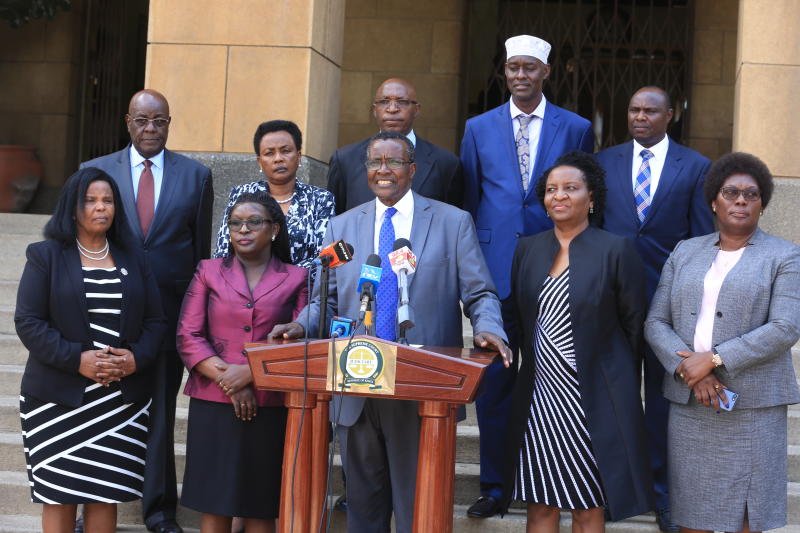×
The Standard e-Paper
Home To Bold Columnists

A top judge accused of misconduct will face a tribunal, as numerous justices also battle to clear their names in the wake of bribery claims.
Petitions questioning the conduct of some Supreme Court judges have been filed with the employer, Judicial Service Commission (JSC), with the exemption of the deputy chief justice, who is also fighting a criminal trial.